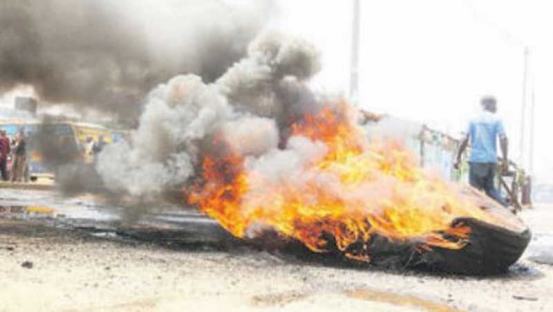×
The Standard e-Paper
Join Thousands Daily

With just two months to the General Election, the Interior Ministry says it is prepared for any eventuality that might arise from the election outcome. The August 8 presidential poll is proving as hotly contested as the 2007 one that sparked off violence across the country.
To do this, Interior Cabinet Secretary Joseph Nkaissery says the ministry has bolstered the number of security personnel, improved their mobility and emergency response units and that the uniformed forces are better equipped.